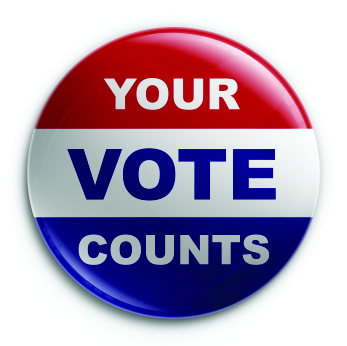
By Forrest Maynock
The 2016 presidential election may be one of the most polarizing in United States history.
Neither candidate is loved by the majority of people, and both have character concerns that have been causing many questions among voters.
Donald Trump, the Republican candidate, has taken very controversial stances on major issues like boarder security, and has also shown that he is willing to “speak his mind” to the point of sounding vapid.
Hillary Clinton, the Democratic candidate, has been questioned for her potential legal issues and possible health concerns.
Arguments can be made for who should be the next president of the United States, and where votes should go, but as an opinion, I feel that congress and the free seat in the supreme court are more important to this country in the long run.
Congress especially has been in a state of deadlock on many issues for years, and approval ratings are at an extreme low. As of September 7-11, there is 20% approval, and 76% disapproval per Gallup. That seems far scarier than Trump and Clinton combined.
The biggest moral conundrum that many people are facing in the upcoming election is how to vote.
Many people have legitimate concerns about both candidates, and feel backed into a corner. The message I have for those who feel they have no choice: Please vote in this upcoming election, even if it’s a write in or third party choice. The presidential election is important but the senate and house elections may be even more important at this time. So go to the booth, and vote for your local house and senate seats.
Polls as of October 16 this year, calculated by FiveThirtyEight.com, show that Clinton and Trump are fairly close together in terms of popular vote. Clinton leads with 49.5%, and Trump closely follows with 42.9%. The electoral vote is projected to be much more in favor of Clinton who is projected to win 339.7 electoral votes compared to Trump’s projected 198.
However, there is a portion of people that identify as Republican but say they will never vote for Trump, and there is also a portion of Democrats that share a similar mentality with the “Bernie or Bust” slogan.
How much of an impact these groups will have come election time remains to be seen, but there are a number of voices that do not want either of the options given.
Based on numbers from the U.S. Census Bureau, the percentage of registered voters dropped from 63.6% in 2008 to 61.8% in 2012. The 1996 and 2000 elections did not break 60%. When there is nearly 40% of the potential voting population of a country choosing not to vote, I think that there is some sort of an issue.
According to The American Presidency Project, the voting turnout among eligible voters first started to dip in the early 1900’s. 1908 was the last high in voter turnout with 65.4%. Numbers are still down in voting booths. Two reasons this may be happening might be political apathy and complacency.
Politically apathetic with a lack of trust or lack of interest in American politics, and complacent with those who are fine with the way things are at this time, are dangerous problems for any society. The population of any nation should be educated and participate in politics. Letting those freedoms rest could lead to potential political corruption or worse.
This being said, the presidential election does not need to be limited to Republican or Democrat. There are options for those that feel uncomfortable with the only two choices given. There are also a few different third party candidates that are between 1-6% in some polls.
The most prominent are the Libertarian presidential candidate Gary Johnson, and Green Party candidate Jill Stein. In an article posted on Friday, September 30, Gallup Poll showed that there has been an increase in desire for third party candidates has risen from 46% in 2012 to 57% in 2016.
The question that many will ask is: “Are third party candidates worth voting for?” Will either Jill Stein or Gary Johnson win the general election this year? Unlikely. Is a vote for a third party candidate worthless?
No, if I believe in the principles put forward by a given candidate, then political party should not matter.
